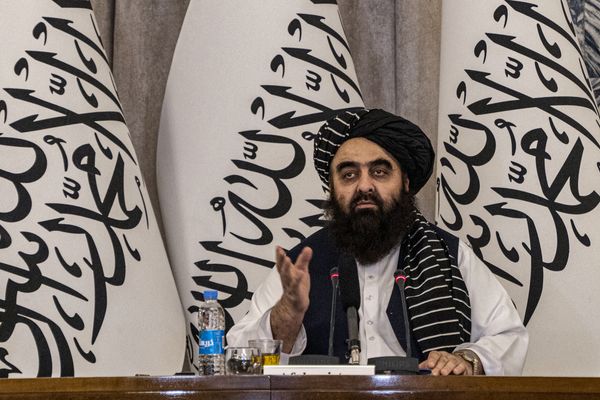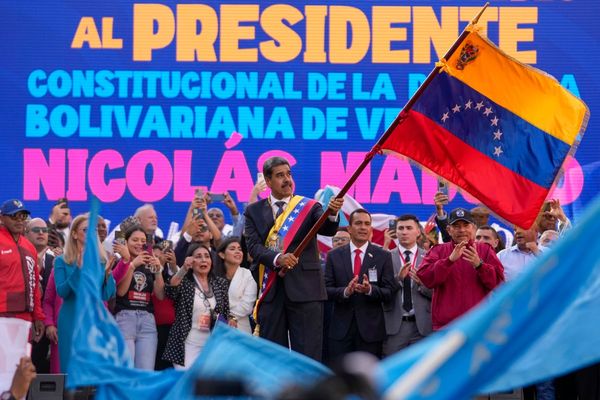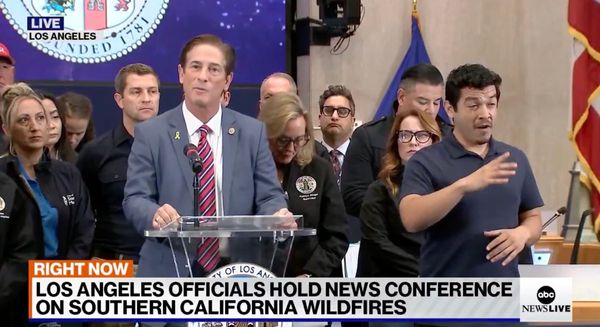
The Colombia-Venezuela border is a perennial powder keg, but recent events have raised the temperature to explosive levels. Fighting between the Venezuelan military and a nonstate armed group that started in March has left at least 17 people dead, dozens injured, and more than 5,000 displaced. This month, Venezuelan leader Nicolás Maduro announced that he would seek emergency assistance from the United Nations to diffuse landmines planted by insurgents and drug traffickers in Venezuela’s Apure region along the frontier. This follows on the heels of a request from a coalition of civil society organizations to designate a U.N. special envoy to help put an end to hostilities.
If there is a silver lining to this tragedy, it’s that Maduro’s request to the U.N. represents a rare instance of openness to international assistance, and U.N. Secretary-General António Guterres should take both Venezuela and its civil society up on their offers. Doing so would not only help resolve the immediate border crisis: It would also serve to build trust between Maduro and the U.N. in ways that could rekindle negotiations to resolve Venezuela’s broader political stalemate while igniting a much-needed process of peace building in the country.
The 1,300-mile border that divides Colombia and Venezuela has long been porous, contentious, and ungoverned. Criminal and rebel violence in the liminal space between the two countries has been the prevailing concern this century—resulting in more than a dozen cessations of cross-border diplomatic, migratory, and economic activity since 2005. Today, at least 28 illegal armed groups operate in the border region, trafficking in all manner of illegal goods, including drugs, contraband oil and gold, and arms. Some benefit from protection by and even collusion with Maduro’s inner circle, Venezuelan security forces, and paramilitary units. The illicit income from these activities has, in part, strengthened Maduro’s grip on power despite international sanctions that have cost the Venezuelan economy an estimated $17 billion to $31 billion since 2017.
Although the motives for the border offensive remain murky, analysts suspect that the Tenth Front, a group of dissidents from the now-defunct Revolutionary Armed Forces of Colombia (FARC), violated the terms of profit distribution laid out by Maduro. What is clear, however, is that Venezuelan troops are only selectively targeting criminal cells while purportedly ignoring others that enjoy close links to Venezuelan officials. In early April, the Venezuelan armed forces deployed a special military unit to conduct airstrikes, mortar attacks, and armed raids, resulting in the arrests of more than 30 suspected criminals—including members of Mexico’s Sinaloa cartel. Even in a country as violent as Venezuela, these events stand out, underscoring the urgency of the petition for U.N. aid.
For practical reasons, the U.N. is best equipped to step in. It has experience in mine removal and refugee assistance. And in addition to mediating recurring diplomatic rows between Colombia and Venezuela in past decades, the U.N. continues to verify the implementation of the FARC peace process in Colombia, affording it credibility and expertise to serve as an interlocutor between the Venezuelan government and the border’s irregular armed groups.
Such a role could additionally grant the U.N. entree into helping Venezuela to resolve another major crisis: a two-year political impasse rooted in disagreements over Venezuela’s 2018 presidential election. Today, domestic support and diplomatic recognition are divided between two administrations: Maduro’s and that of Juan Guaidó, who was president of the opposition-led legislature and continues to serve as the U.S.-backed interim president of the country. Following the collapse of 2019 negotiations to arbitrate the question of presidential succession, dialogue between Maduro and Guaidó has been limited to piecemeal agreements on mitigating Venezuela’s humanitarian turmoil and securing coronavirus vaccines for the country. But the costs of the dispute over control of the executive branch continue to mount. Just last week, the International Monetary Fund determined that Venezuela is ineligible for new lines of credit to deal with debt and pandemic-related relief until Maduro and his opposition come to a consensus.
One of the principal obstacles to resuming talks to end the political stalemate has been Maduro’s distrust of international facilitators, which is more reason why Guterres should embrace overtures to increase the U.N. footprint in the country. This rapprochement stands to quell violence and contain civilian casualties along the border. But it could also help fortify the presence of international organizations inside Venezuela and build the confidence needed to restart comprehensive negotiations between Venezuela’s dueling presidential claimants. At the very least, it could open the door to additional partial pacts—including expanded food aid distribution via the U.N. World Food Program, which this week was granted access to the country to administer limited assistance to alleviate child malnutrition.
Unlike other regional and international organizations, the U.N. has remained both pragmatic and disinterested in its approach to Venezuela’s political deadlock, rendering it uniquely suited to reconvene negotiations. The presence of China and Russia, Maduro’s two most important allies, on the U.N. Security Council would further reassure Maduro, while Guaidó’s allies in North America and Europe are equally well placed to advocate for fair conditions for the opposition.
In addition to generating trust, U.N. participation in security-focused activities at this stage would help develop the peacekeeping and stabilization infrastructure inside Venezuela that will be necessary in the event of a political transition. As I explored in a recent report on the stabilization of Venezuela, Maduro’s departure from office—or any other reconfiguration of national power through negotiations, for that matter—is apt to result in disorder, unrest, and armed competition for territorial control. Under these circumstances, the U.N. could be asked to establish a special political mission to verify the terms of any political or security agreements. The U.N. could also be relied on to implement demobilization, disarmament, and reintegration programs aimed at the country’s predatory paramilitaries and other nonstate armed groups. Participating in demining activities and localized conflict resolution in Apure today could serve as a proof of concept for a longer-term U.N. peace-building role nationwide.
An enhanced role for the U.N. is a practical and welcome measure to handle the current border emergency. But the outbreak of fighting is but a sign of what lies in store for Venezuela come what may—shifting alliances among criminal groups, the fragmentation of Maduro’s governing coalition, or even a negotiated political solution. It is in addressing these larger, more enduring challenges that the U.N. can make a lasting contribution to Venezuela’s reconstruction, but the U.N. can only expect a seat at the table if it chooses to walk through the door.







